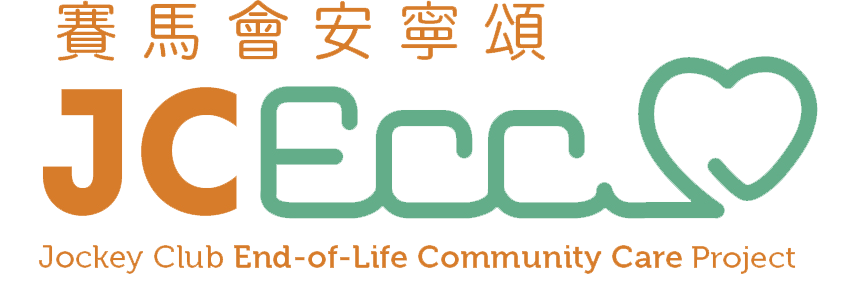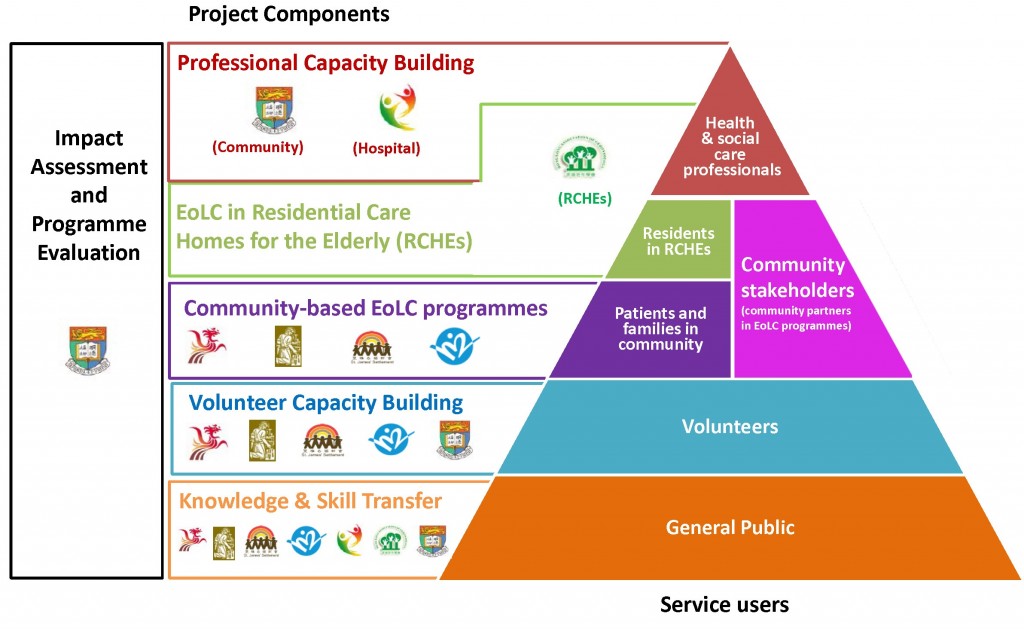The JCECC Project involves multi-level of intervention for different target groups. Each component in the Project targets on specific types of service users, including health and social care professionals, residents and families in residential care homes for elderly (RCHEs), community-dwelling patients and their family members, other community stakeholders in the EoLC programmes, volunteers, and the general public. To evaluate the outcomes and impacts of the Phase I Project between 2016-2018, the Faculty of Social Sciences, the University of Hong Kong has adopted a mixed methods evaluations involving both quantitative and qualitative studies. The findings not only inform us the effectiveness of the core components of this project, but also to ensure sustainability.
The evaluation was conducted in line with the 5 project components:




